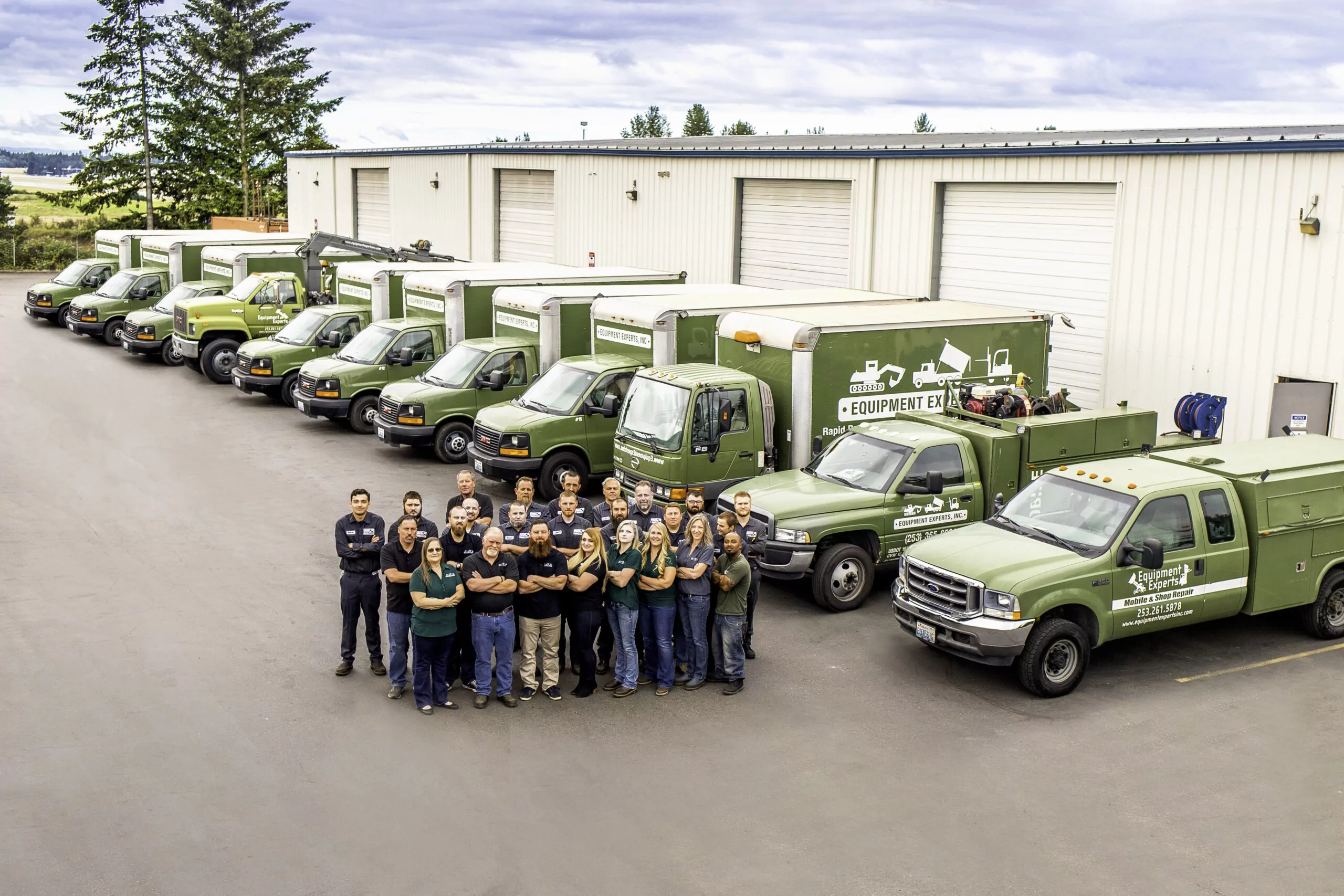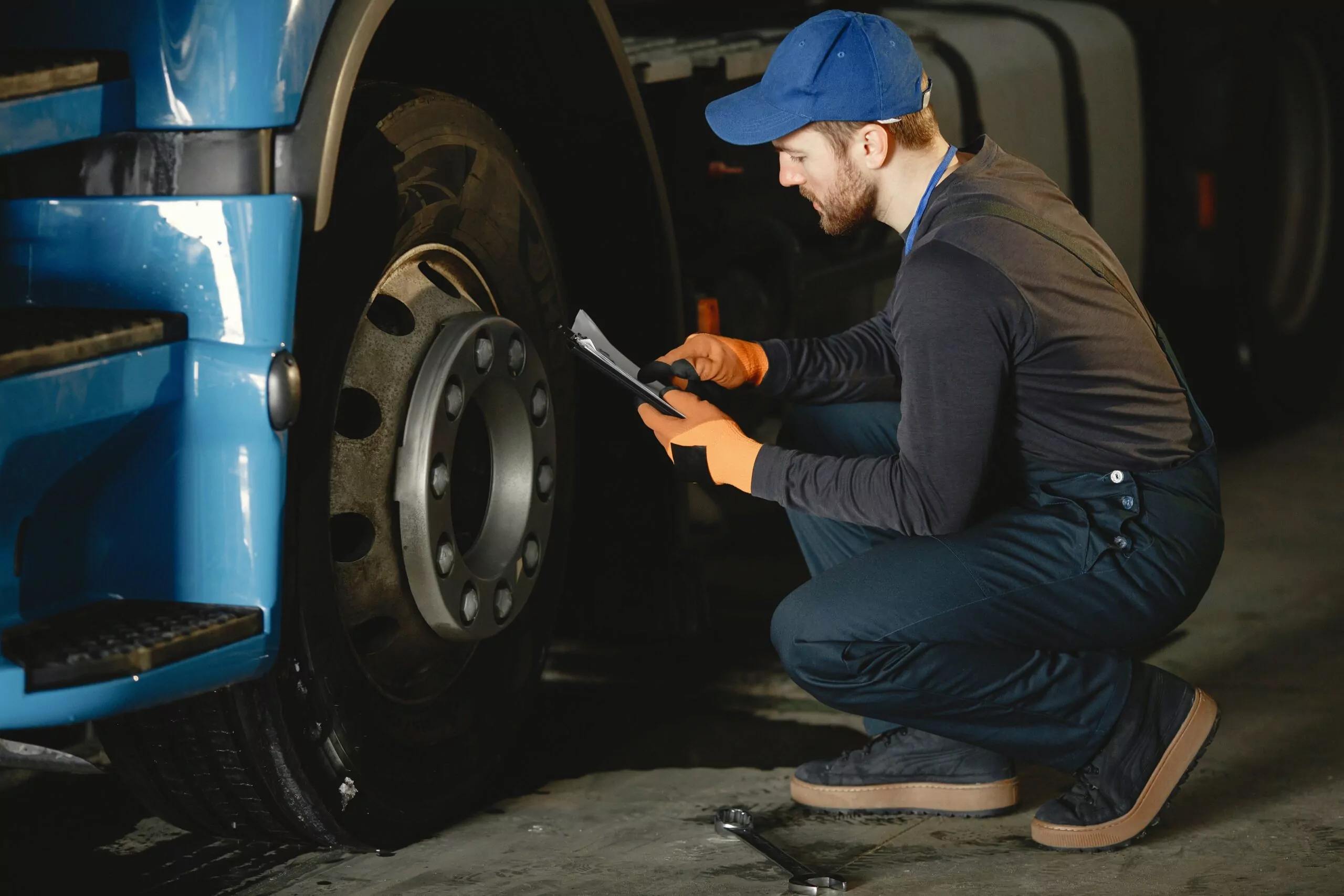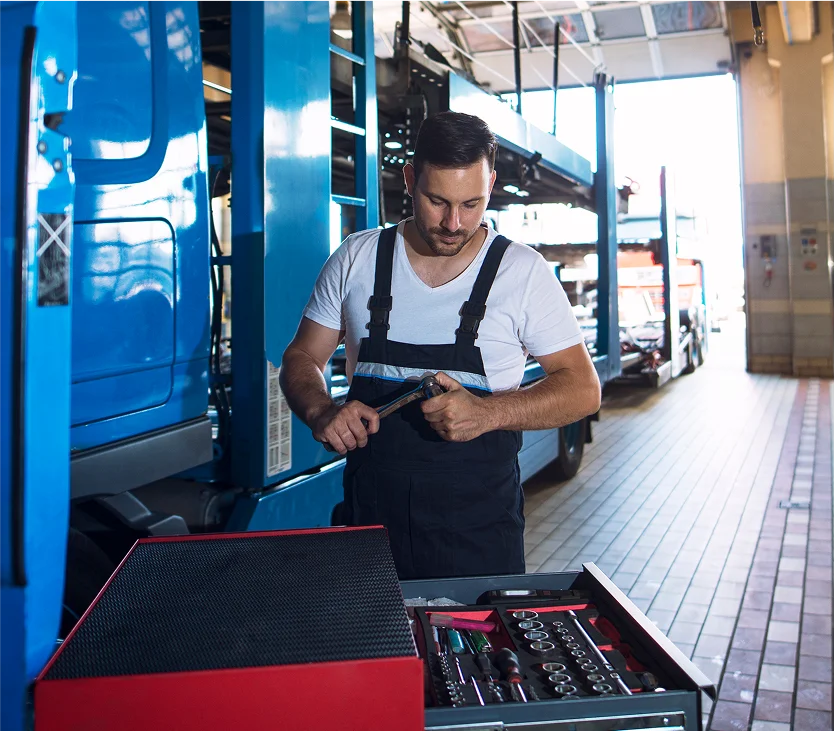
Truck problems shouldn’t cause long-term problems. But they often do.
When a truck problem comes up at the last minute, all you can think is, “Should’ve done preventive maintenance when I had the chance.
Besides costly repairs, truck problems can cause long-term damage, backlogs, and profit losses.
As fleet managers, drivers, and technicians ourselves, we know what it’s like to be in a pinch with a truck. We at Equipment Experts, Inc. have been helping fleet managers, operators, and drivers build more dependable fleets for more than 20 years.
We’ve compiled a list of nine of the most common truck problems your fleet will face to help you stay ahead of the game. If you’re wondering how to keep tabs on your truck to prevent truck problems, look no further. We’ve got your back.
In this article, we’ll review the nine most common truck problems as well as what to look for to help fix them. Let’s roll.

With truckers logging thousands of miles on the road, sooner or later, a tire blowout is bound to happen. One of the most common truck problems we see is over- or under-pressurized tires.
The three best ways to make sure your truck doesn’t have problem with its tires include:
By being proactive, you can avoid truck problems related to your tires. Consider checking your tires often to ensure a safer, more productive fleet.

A truck’s brakes are the next system that’s most likely to encounter problems. In fact, data from the Federal Motor Carrier Safety Association suggests that brake problems are one of the leading factors related to large truck crashes.
It comes as no surprise that driving on worn brake pads can result in accidents. A large vehicle with an antique brake caliper, carrying a large load, plus driving on worn-out brake pads, is a recipe for disaster.
Regular maintenance on your brake systems — brake fluid, brake calipers, pads, and all — can help you avoid brake failures. Performing regular maintenance can help your truck remain safe and efficient while on the road.
Though not always visible, oil leaks can cause slow and lasting damage to a truck. When an oil leak occurs, a vehicle can lose lubrication. With the loss of lubrication, friction between vehicle parts can occur.
If gone unchecked, parts can fail, causing engine problems (or worse) in a vehicle. The key to preventing damage due to an oil leak is regular maintenance on your vehicle.

If you notice flickering/flashing headlights, clicking noises, or trouble when starting your engine, your truck could be experiencing electrical issues. Most electrical issues tend to start with the alternator, starter motor, or battery.
The simple solution for electrical issues is to replace old electrical parts with new ones. When building out your preventive maintenance schedule, make sure to include a section of your PM schedule that looks at the electrical system in your truck.
The engine is the heart of your fleet vehicle. To prevent overheating or engine failure, make sure your engine is up to date on its repairs.
Common engine problems can occur as a result of blown gaskets, fuel leaks, and overheating. You’ll also want to look for fluid leaks, faulty thermometers, or old radiators to prevent breakdowns.
By conducting regular repairs and maintenance on your engine, you can avoid engine failure and expect better, more reliable performance from your truck.
A well-maintained fleet isn’t just about uptime — it’s about trust. When your trucks run smoothly, your business does, too.
For more wisdom for your fleet, check out our Instagram page.
Speaking of overheating, when an engine overheats, it’s most likely a result of leaking coolant, faulty thermometers, or old radiators. A professional inspection and diagnostic review of your truck can help reveal the cause of overheating in your truck.
To prevent a vehicle from overheating in the first place, consider bringing in your vehicle for routine maintenance. If your vehicle is immobile, you can also call on a mobile repair specialist for on-site repairs.
As fleet drivers spend more time on the road, a clutch breakdown is only natural. Time is one of the main factors in a truck having a broken clutch.
At the same time, drivers can prolong the life of their clutch by practicing safe driving habits. Using your clutch according to manufacturer recommendations will help you preserve your clutch.
By practicing safe driving on the road, you can reduce premature wear and tear on your vehicle’s clutch.
Notice any shaking recently? How about clicking noises?
If you notice either of these out-of-the-ordinary patterns in your truck, your truck could be having issues with its suspension. The first indicator of a suspension issue includes when the ball joint on one side of a truck starts to wear out.
Your ride will become more bumpy and uncomfortable as a result. Pre-trip inspections and regular maintenance can help quash potential issues before they begin.

If not for the health of your truck, doing so will help you meet Federal Motor Carrier Safety Association’s (FMCSA) regulations for healthy emissions and help you avoid DOT violations.
Replacing cabin air filters and other exhaust system parts can help you avoid breakdowns. By keeping tabs on particles blown into your interior, you’ll ensure yourself a safer, more comfortable drive for the long road ahead.
If the engine is the brain, the battery is the heart of your vehicle. According to recent research, the electric truck market is currently valued at just over $674 million. Experts predict that the market will grow a whopping 32% between 2023 and 2030.
As technology develops, truck batteries will become more and more important. By checking the condition and age of your battery, you can help keep your battery running healthy and well for years to come.
In short, when you take care of the heart of your vehicle, it will take care of you.
Truck drivers: there’s a ton going on beneath the hood of that powerful vehicle of yours. Whether you’re a truck owner or a fleet manager, you know just how important proper maintenance is to help keep your fleet fit and healthy.
But maintenance takes time. Finding a qualified and knowledgeable mechanic isn’t always as easy as it seems.
Can we give you a hand? At Equipment Experts, Inc., our diesel repair specialists have more than 20 years of experience with fleet vehicle repairs. Whether you’re looking for tire rotations, a fix for faulty breaks, or general vehicle maintenance, our maintenance professionals will ensure your vehicle is 100% healthy and road-ready for wherever your adventures may take you.
Learn more about what our expert diesel repair technicians can do for you! Contact us today.
We’ll see you on the road.
The most common areas of a truck requiring regular inspections and maintenance include:
We recommend bringing your truck in for regular maintenance and diesel oil changes. Regular preventive maintenance will help ensure your truck is functioning well.
The answer depends on how old your vehicle is, how you drive your vehicle, and which parts you have in mind. If your vehicle is having truck problems, you can prevent problems with a little preventive maintenance.
Feel free to bring your vehicle in for an inspection at an in-shop or mobile repair facility. Your qualified mechanic will be able to better diagnose whether your vehicle needs a repair or parts replacement.
Our fleet manager video series, fleet eBook, and educational resources are all great places to start. You can also learn more on any of our social media websites where you’ll hear from many of our past satisfied clients.